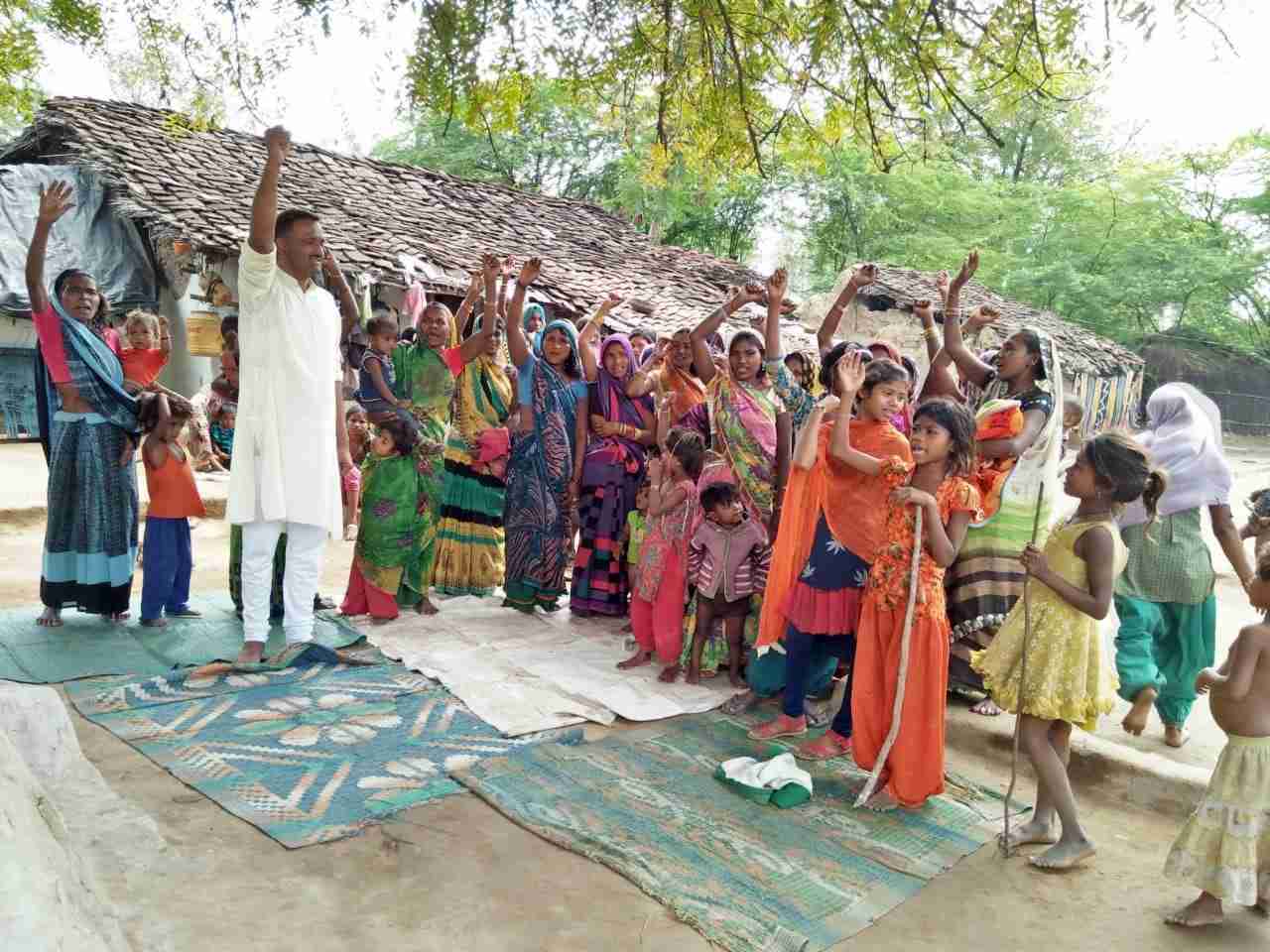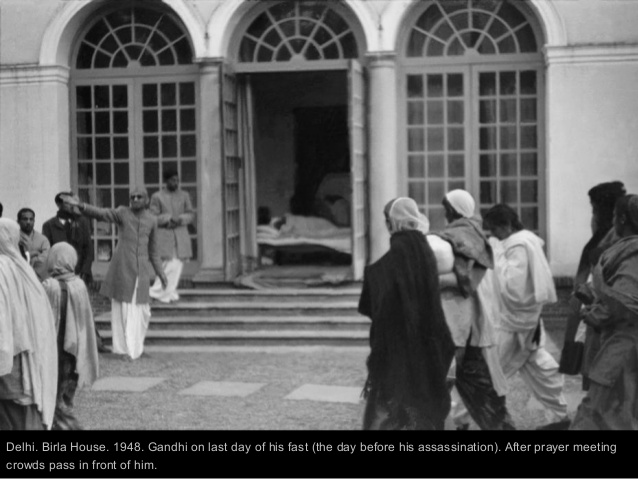As we moved a away from the starting point of the Bundelkhand Expressway and a famous pilgrimage site into a side-road, the hills of Chirakut here appeared to be more and more isolated. Another turn, and we appeared to have reached almost a dead-end. However it is here that over 80 households of the Kol tribal community have been living for a long time.
This is Dafai hamlet located in Karvi block of Chitrakut district (UP). This settlement was formed several decades back when some dominant feudal persons were keen to have many workers at their beck and call all the time, particularly as they were interested in large-scale, highly lucrative stone quarries and it was important to get pliable workers nearby for the hazardous stone crushing work.
Those Kol families who were in vulnerable conditions in places like Manikpur were encouraged by them to settle in some vacant land and this is how the Dafai hamlet was settled.
When I first visited this hamlet about five years back I learnt that they had no farmland, and even their housing land on which their small mud houses stood was not secure as feudal persons still claimed this as their own, and to maintain this status they tried their best to keep these families away from government benefits which could have brought some recognition of people’s rights as residents of this hamlets.
Hence I learnt that most of the people living here did not have ration cards and job cards, and nearly 90% of the children here did not go to school then. This settlement did not have any electricity connection. The only source of water supply was a hand pump and if this did not work they had to get go far for fetching water. There were no toilets in the village and women in particular were very troubled by having to go to a distant hill in unsafe conditions. Working conditions in stone crushing units were very harmful for health. So bad was the situation in fact that we had to rush to provide immediate some relief for cold wave conditions.
Later at my home in Delhi I got news of further trouble, serious trouble here. Taking advantage of the further vulnerability of women workers in crushing units during COVID times, some of their employers started subjecting them to sexual exploitation. The leading voluntary organization trying to help them—Vidyadham Samiti—obviously tried to check this. As a result the silence was broken and news of this violence against women appeared in some media outlets, local and national. Instead of rushing to check this, the police instead responded initially by victimizing and badly humiliating the chief functionary of Vidyadham Samiti—Raja Bhaiya, an activist known widely for his firm commitment to the rights of the most vulnerable communities. He was taken to the police station, treated very badly, abused and threatened of much worse to come. All sorts of pressures were exerted on the people and in particular the women of Dafai to implicate him in some false case but the people resisted all pressures and refused to say anything false against the man they stated had tried to help them most sincerely (Vidyadham Samiti had also been involved in distributing relief far and wide during COVID times).
Meanwhile an appeal to the National Human Rights Commission resulted in the police official involved in the harassment of Raja Bhaiya being fined Rs. 50,000, and this amount being used to provide compensatory payment to Raja Bhaiya.
This turn of events allowed Vidyadham Samiti to again devote itself to getting justice for the people of Dafai. Meanwhile this distant hamlet had come so much into focus that the administration selected this hamlet for a concentration of several of its development schemes.
Job cards and ration card were made. Tap connections were provided under the ongoing scheme although water is still to reach these taps. Above all, in a rare decision, almost all the households here were selected under the PM Awas scheme for new house construction. In the case of nearly 70% of them these houses have been constructed or are nearing completion. However as the amount given is not adequate people also had to borrow money to get houses constructed from private moneylenders on high interest rate and now they are compelled to pay back around Rs. 800 or more to these moneylenders per week for about two years or so.
At the same time most of them have lost work at crushers due to mechanization or other factors. Now they have become more dependent on going to brick-kilns as migrant workers. Women here said what they want is some work they can do within or close to their village. However NREGA work is provided very rarely and then too wage payments are too delayed.
Despite the recent increase of development work, no toilets have been constructed yet. No electricity connections have been given yet.
One source of new confidence among villagers is that as the government has helped to construct houses here their stay here has become more secure with housing rights. Although some feudal persons still threaten that one day you will have to leave, but on the whole now they feel more secure.
Hence this village has been on a journey of despair as well as new hope in recent years and needs more support to strengthen its gains.
Bharat Dogra is Honorary Convener, Campaign to Save Earth Now. His recent books include Protecting Earth for Children, When the Two Streams Met and A Day in 2071.











